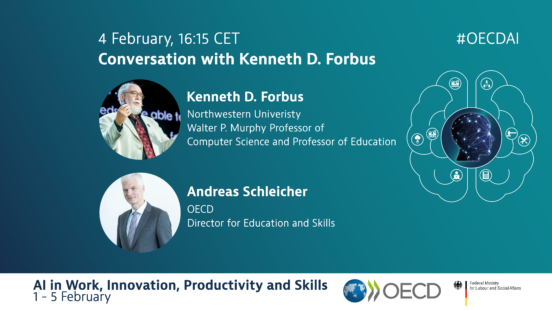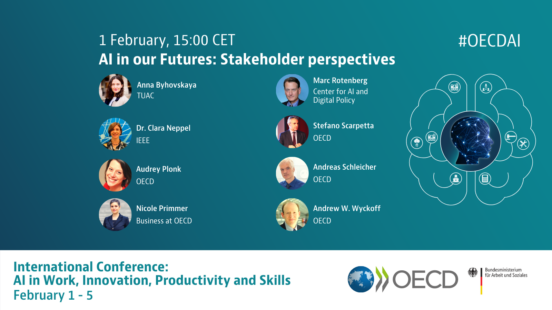Andreas Schleicher's publications
Andreas Schleicher's videos

Conversation with Kenneth D. Forbus
–This keynote by Kenneth D. Forbus, Northwestern University, moderated by OECD Director for Education and Skills, Andreas Schleicher, will present an innovative analysis on the key ways AI capabilities currently fall short of human capabilities and describe the current work in AI that addresses those limitations.

AI in our Futures: Stakeholder perspectives
–As artificial intelligence reshapes our futures, what do OECD’s stakeholders consider to be the opportunities and challenges for work, innovation, productivity and skills? In this roundtable session, representatives from business (Business at OECD), labour (TUAC), civil society (CSISAC) and the technical community (ITAC) will share their views and offer insights from their communities on the evidence gaps and policy priorities where the OECD can advance the debate.


























